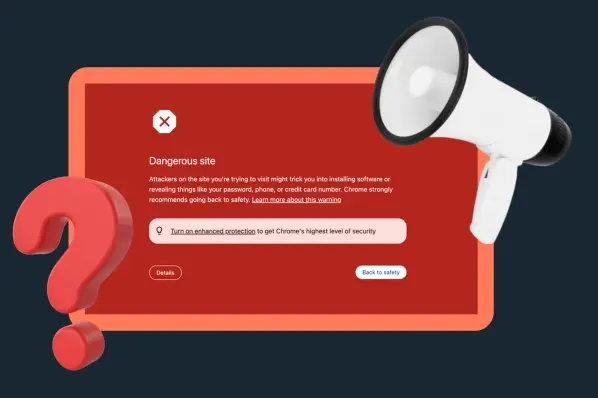If you’re noticing that your site has a high bounce rate or low conversion rates, I believe it’s worth running a page speed test to get a feel for whether your load time is impacting your users. However, it’s not enough to just throw your site into a tool — you also need to learn how to measure site speed correctly.
In this post, I’ll teach you how to run a page speed test and how to rectify the issue at hand.
Table of Contents
- What is website speed?
- Why does website speed matter?
- How to Test Website Speed
- Factors That Affect Page Speed
- Best Website Speed Test Tools (and Website Speed Test for Mobile)
- How to Respond to a Bad Page Speed Test Result
- How to Improve Website Speed
- Improve your website speed.
What is website speed?
The term “website speed” refers to how quickly a browser can load your web pages for users. Website speed is the amount of time between when your visitors click the link to access your website and when the page actually displays. If there’s a delay or lag, that could spell significant trouble for your bounce and conversion rates.
These days, website visitors are often turned off by even the slightest delay. To illustrate this, there’s data connecting slower load times with both a decrease in conversion rates (especially for ecommerce stores) and an increase in bounce rates.
Why does website speed matter?
Site speed can quickly determine whether a user sticks around on your website. Additionally, search engines, particularly Google, will factor in site speed when determining which websites to show at the top of the SERPs. If your site is slow, it will be like running with ankle weights when it comes to all of your other SEO tactics.
I have some good news, however: If your site is doing everything right but still isn’t experiencing search engine optimization (SEO) success, a quick page speed test can reveal that your efforts aren’t in vain — it’s just a matter of giving your website speed a boost.
So, to quickly recap, website speed matters because:
- Slow load times have a detrimental impact on your SEO.
- Website speed is connected to your bounce rate.
- Your website speed has an effect on your conversion rate.
- It can negatively impact users’ perception of your brand and, therefore, their willingness to purchase from your company again.
In other words, fix your website speed, and you can actually be fixing a slew of related issues.
How to Test Website Speed
You want to test website speed, and I know how to do it. So, rather than beating around the bush, let’s jump right into how to measure site speed correctly using one of my favorite speed test tools.
I’ll take you step-by-step running your own speed test. Then, once you’ve got that done, I’ll get into a bunch of other helpful information, such as the factors that affect test results, some other great speed testing tools, and more.
Let’s start at the beginning.
Page Speed Tests: What are they?
Page speed tests are designed to — you guessed it — test your site’s page loading time. Your page speed test evaluates two things. First, the loading speed of your site. Second, the page speed test considers how responsive your website is. When you complete a page speed test, your server response time will be measured, as well as other factors such as browser rendering and network latency.
I think it’s important to note that there are a lot of page speed tests available, and they all come to a conclusion about your page speed slightly differently. That’s why one bad test doesn’t necessarily indicate something major wrong with your website — especially if other tests indicate that it’s successful.
Now, let’s go through running your first test.
1. Choose your speed test tool.
To start, you’ll need to choose a speed test tool for your performance tests. Below, I’ll share eight of the best speed test tools, including easy-to-use multipurpose optimization checkers like Website Grader and more technical performance monitoring tools like New Relic.
However, for a great starting point that’s not too difficult to use, my personal all-around favorite is the free WebPageTest tool. I like it because it gives you a lot of customization options for setting up your test while still making it fairly easy to interpret the results.
Another good option is the free Pingdom speed checker, which is a bit simpler but doesn’t offer as many customization options. If you’re interested in how Pingdom works, check out this video on how to measure site speed correctly with Pingdom:
If you’re interested in using WebPageTest, get started by opening the WebPageTest website in your browser and adding the URL of the page that you want to test to the box.
2. Configure your speed test.
Some speed test tools use the same configuration for every test, with maybe a single option to choose the test location.
WebPageTest gives you a little bit more flexibility, though, which can be beneficial for some reasons that I’ll discuss in the next section. However, as a consequence of that, you’ll need to choose how you want to configure your speed test before you can collect your data.
For the easiest option, you can just choose one of the preset Simple Configurations. For example, if your site gets a lot of mobile visitors from the U.S., you might want to choose the Mobile 4G Virginia, U.S. option to get a feel for the speeds that your mobile visitors will experience.

If you want more control over your test configuration, you can click on the Advanced Configuration option, which is what I usually do.
Here’s how I typically configure my tests when I want to test my site’s desktop performance — if I don’t mention a setting, you can just leave it as the default:
- Test Location. I choose the location that’s closest to the majority of my visitors. For example, if most of your audience is coming from the U.S., you should choose one of the locations in the U.S. WebPageTest has locations on all six inhabited continents, which is one reason why I like it.
- Connection. I choose FIOS (20/5 Mbps), which is a good conservative number for the average speeds of visitors in the U.S. You can make it faster or slower depending on your audience, though.
- Number of Tests to Run. I set this to 5+ runs. This will run the speed test multiple times and then show you the median result, which I think is important to eliminate single-test variability.
Once you’ve made your choices, you can click the Start Test button to begin.

3. Analyze the results.
After a short wait, you should see the results of your speed test.
To start, you’ll be in the Performance Summary view. This gives you basic details about your site’s performance, along with some plain word analysis (e.g., “Is it Quick?”). You can also click on the Opportunities and Tips options underneath each heading to get some suggestions for improving your site’s performance.

However, to see the most data about your site’s performance, I recommend using the View drop-down to choose the Details report.
In terms of page load times, I recommend focusing on these two metrics, which you can find by scrolling down to the Page Performance Metrics area:
- Largest Contentful Paint (LCP). This is a user experience-focused performance metric that’s part of Google’s Core Web Vitals. It measures how long it takes for the “main” content of your page to load, which affects how humans perceive your site’s speed.
- Total Time. This is what most tools count as “page load time.” It’s the time that it takes for your entire web page to load.

To help you dig into these top-level metrics in more detail, I also recommend looking at a few more detailed analyses:
- Visual Page Loading Process (film strip). This lets you see a visual preview of what your site looks like to human visitors at different times in the loading process. If your site loads visual content early in the process, it will “feel” faster to human visitors, even if the total load time takes longer.
- Waterfall View. This lets you see the effect of individual files on your site’s load times (e.g., images, CSS stylesheets, JavaScript scripts, and so on). Using the waterfall view is a bit more technical, but I think it’s one of the best ways to dig into the performance of individual elements on your site. For example, you might find that a certain JavaScript script is blocking other content from loading.
4. Test additional pages as needed.
One mistake that I think a lot of people make with website speed tests is only testing the performance of their website’s homepage.
This can be an issue because your site’s homepage may or may not be representative of the performance of other parts of your site. What’s more, it’s normal for visitors to spend most of their time on internal pages — not the homepage.
To get a broader picture of your site’s performance, I recommend also testing the speed of other important pages on your site. For example, if you’re selling products or services, you might also want to test the speed of your pricing and order pages.
Basically, if there’s a page that visitors will need to interact with a lot and that page is important to your business, you should test its performance.
Factors That Affect Page Speed
In my experience, there are two types of factors that can affect real-world page load times, as well as a third factor that can affect the speeds that you see in simulated speed testing tools.
- Back-end optimization.
- Front-end optimization.
- Simulated speed test configuration.
Let’s go through them.
Back-end Optimization (Server Response Time)
At a high level, there are two types of tasks that need to happen before a visitor’s browser can render your finished page, both of which can affect page speed.
First, the visitor’s browser needs to connect to your site’s server and receive a response with the various files that comprise your website. Then, the browser needs to download all of the files and assemble them into the finished webpage.

If you have a static HTML website, your server can respond with the files right away. However, if you’re using some type of content management system (CMS), the server typically needs to perform some back-end processing before it can respond with the files that the visitor’s browser needs.
For example, if you have a WordPress website, the server would need to query your site’s database, process the server-side PHP code, and so on. Only once that’s finished can it respond with the files that the visitor’s browser needs.
Optimizing all of this server processing is called back-end optimization, and it’s one of the big factors that can affect page speed.
Here are some common things that can affect your site’s back-end optimization:
- Server quality/power. Better hosting with more powerful server resources will be able to serve up your site’s files faster and to more visitors.
- Page caching. This lets you server cache the finished HTML output of a page, rather than needing to generate the page for each visit.
- Content delivery network (CDN). A good CDN will reduce global server response times by caching your site’s files on a global network of servers.
- Domain name system (DNS) optimization. Using a faster DNS hosting service can reduce the time it takes for visitors’ browsers to connect to the actual hosting server behind your domain name.
Front-end Optimization (Code Optimization)
After your server responds with your website’s files, a visitor’s browser still needs to download all of those files and render all that code into a working web page before the visitor can start interacting with your site.
Optimizing for this part of the process is called front-end optimization, and it plays the second big role in your site’s page speed times.
Here are some of the common factors that can affect front-end code optimization:
- Amount of code. You can reduce the code that’s required to load your site by implementing tactics such as removing unused CSS, code minification, page-level JavaScript loading, and so on.
- Number of files. You can reduce the number of files that your site requires by implementing tactics like limiting fonts, lazy loading, and so on.
- File size optimization. You can find ways to reduce the size of files. For example, you could resize and compress the images that you use on your site to make them load faster.
- Code loading optimization. You could optimize how your code loads. For example, removing render-blocking JavaScript that gets in the way of loading the visible content on your page.
Test Configuration
Finally, I think it’s important to note that the conditions and variables of your test will also play a big role. These factors will not affect the real-world performance of your site, but they will play a role in the numbers you see in speed test tools.
In a nutshell, there’s no single “load time” metric for your site, and how you configure your test can have a huge effect on the results that you see in simulated speed test tools.
Here are some of the test conditions that can affect the page speed number you see in testing tools:
- Test location. If your site’s server is located in the U.S., you’ll see faster load times when you test from the U.S. and slower load times when testing from areas that are a further distance away (e.g., Japan).
- Connection speed. Running a test using a slow 3G connection will produce slower results than using an ultra-fast connection.
- Test device. The processing power of your device will affect how long it takes to render a website. For example, a high-powered desktop computer will be able to process your site’s code faster than a budget smartphone. This is especially notable for JavaScript-heavy websites.
- Test variability. Even with the exact same conditions, you’ll still see variability between different test runs. For this reason, I recommend running multiple tests and taking the average value.
To give you an idea of how much these variables can affect the times that you see, I ran two separate tests on the exact same website:
- One test from the U.S. with a fast, unthrottled connection.
- One test from Jakarta, Indonesia, using a slow 3G connection.
In the first test, the site had a Largest Contentful Paint time of 0.531 seconds and a fully loaded time of 0.857.

In the second test, the site had a Largest Contentful Paint time of 5.196 seconds and a fully loaded time of 13.868 seconds.

It’s literally the exact same site! Nothing has changed in the site’s hosting or optimization. However, there’s an absolutely massive difference in the numbers just from how I configured the test.
For this reason, you need to be very careful when comparing results, especially between different tools.
Also, if you want to get results that are actually useful, you should always configure your test in a way that mimics your site’s real-world audience.
Best Website Speed Test Tools (and Website Speed Test for Mobile)
While I like using WebPageTest for pure speed testing, there are a lot of other great website speed test tools, each with its own unique advantages.
I recommend trying multiple tools so that you can get different data and insights into your site’s performance.
Here are a few of the page speed test options that I recommend you check out.
1. Website Grader

Website Grader is a free tool from HubSpot that can help you test your website’s speed, along with a bunch of other important areas such as SEO, mobile optimization, and security.
All you need to do is plug in the URL of the page that you want to test, and Website Grader will get to work.
In terms of performance results, you’ll be able to see the actual speed of that page, along with other important metrics like page size and number of HTTP requests. Website Grader will also check if you’re using important optimization strategies like browser caching and code minification.
What I like: Website Grader doesn’t just test website performance — it also tests other essential areas of building a successful website. I like this because it lets you use one tool to instantly get a good picture of how optimized your site is for key areas.
2. WebPageTest

As I mentioned in the tutorial above, the free WebPageTest tool is one of my favorite options when it comes to pure speed testing.
Created by a Google Chrome engineer, WebPageTest is a free site speed testing tool with more advanced data and insights than many other free tools offer (although there’s also a simple test option if you’re looking for something more straightforward).
You can test your website speed across various browsers, devices, and locations, and the tool also provides very detailed results. In addition to seeing various load time metrics, you can also see a waterfall analysis and a visual timeline of how your site looks at different points in the loading process.
You can also configure it to run up to nine separate tests in each analysis, which lets you avoid single-test variability by taking the median value of those nine tests.
What I like: The main reason why I use WebPageTest is because of how many configuration options it gives you for setting up your test. You can customize test location, device, connection speed, and so on. I also like the depth of data it gives you on your site’s performance, though its suggestions aren’t as user-friendly as some other tools.
3. Google PageSpeed Insights

Google PageSpeed Insights is a popular website speed testing tool that scores your site speed on a scale from 0 to 100. The higher the score, the better your website is performing. Even better, it’s free.
To account for your mobile traffic, Google PageSpeed Insights can generate tests for your desktop and mobile websites. The best part is that your score is followed by suggestions to improve your site’s performance, some of which you can implement right away.
PageSpeed Insights will display two types of performance data for the desktop and mobile versions of the page that you’re testing:
- Real user performance data. If your site receives enough traffic to be included in the Chrome User Experience report, you can see real-world performance data based on your site’s actual visitors. I find this data especially helpful, and PageSpeed Insights is one of the best places to view it.
- Simulated performance data. It will also run its own simulated performance tests, similar to how most other speed test tools function.
However, one downside of this tool is that it doesn’t give you any options to customize the test conditions, and it uses your own physical location as the location from which to run the test. If you live in a different area from your target audience, you might need to use a VPN to get accurate results in the simulated tests.
What I like: There are two reasons why I find PageSpeed Insights to be really valuable. First off, I love that it lets you see real performance data from the Chrome User Experience Report, as this lets you see how your site performs in the real world. Second, I love how detailed its suggestions are, as it really gives you a lot of information to improve your site’s performance.
4. Pingdom

Like Google PageSpeed Insights, the Pingdom page speed test ranks your website speed from 0 to 100, but this tool is known to be easier to navigate and better for beginners.
You can test your website based on location, and it will provide your performance grade, page load time, page size, content size (broken down by content type), and the total number of requests. Plus, it offers suggestions for improving speed.
While Pingdom’s free speed test tool is very easy to use, I think you can get the most value from Pingdom’s paid monitoring services. With these, you can automatically test your site’s performance every few minutes, which lets you see how your site performs over an entire day.
While the automatic performance monitoring service is paid, you can try it out with a free 30-day trial, which I think is plenty for assessing your site’s performance.
What I like: Pingdom’s free speed test tool is very easy to use, which already makes it an attractive option. However, my favorite thing about Pingdom is its paid performance monitoring service that lets you track your site’s performance over days or weeks.
5. GTMetrix

GTMetrix is another leading free online speed test that’s ideal for beginners. The publicly available version of the test does an excellent job of breaking down performance while keeping things on the simpler side.
When your test is complete, you’ll receive two main scores. First, a performance score, which GTMetrix states is basically your Google Lighthouse performance score combined with some of its own custom assessments. Second, a structure score, which grades how well your page is built for performance.
GTMetrix also breaks down results in several other ways, including a speed visualization that displays your page load as a timeline of screenshots at each core web vital, a structure assessment showing where to optimize your page, and a waterfall chart recording the loading time of each object on the page.
Pro tip: Creating a free account will give you more options for configuring your speed test and also let you view historical data.
What I like: GTMetrix gives you a good number of configuration options while also presenting a lot of data in an easy-to-use interface. While it’s not quite as flexible as WebPageTest, I personally think GTmetrix’s interface is superior to WebPageTest.
6. Sematext

Sematext is a unique DevOps tool that combines all aspects of website monitoring.
In addition to providing real-time alerts and debugging solutions, support for all major frameworks, and end-to-end visibility and observability, it provides Sematext Synthetics. With the Sematext Synthetics feature, you can test website speed across multiple locations and different devices.
Also relevant is Sematext’s website performance monitoring tools. You can track Core Web Vitals and other key performance metrics, get visualizations to pinpoint what aspects of your site need improvement, and even benchmark your site’s performance against competitors.
What I like: Sematext excels when it comes to providing ongoing automated performance testing from a variety of different devices. The only downside is that it’s not a free tool, though you can test it out with a 14-day free trial (no credit card needed).
7. Uptrends

To test your website with Uptrends, it’s as easy as typing in your domain and choosing one of its 20 global server locations. Then, check your site speed across various desktop browsers as well as mobile.
Uptrends will show you your Google PageSpeed score, load time, page size, Core Web Vitals, and requests, in addition to providing suggestions for performance improvements. For its performance suggestions, it prioritizes each category by its impact on your total load time.
Plus, there are various ways to visualize loading your page’s assets.
What I like: Uptrends has a really user-friendly and easy-to-use interface, while still giving you access to important configuration options such as location, device, and connection speed. It’s not quite as flexible as WebPageTest, but it does all the basics well and presents all the data in a really nice way.
8. New Relic

If you’re willing to invest your budget into improving your site speed, New Relic is a helpful tool that offers many details about how your website is performing. The tool can complete speed tests for mobile and show you response times for your plugins and themes.
New Relic also offers automatic notifications when website speed drops, so you can investigate further and resolve the issue faster.
It’s a lot more complicated than these other speed test tools, though, which I think is important to understand. Instead of just pasting in your site’s URL, you’ll need to actually install the New Relic software on your hosting.
You can then get detailed insights into the performance of your site for real human visitors.
What I like: New Relic is a paid tool, best for more technical users who want to not just test performance, but also find the specific bottlenecks that are affecting load times.
How to Respond to a Bad Page Speed Test Result
It’s not hard to find an online speed checker and insert your site’s URL. The hard part is knowing how to respond if you get less than favorable results.
After running a test, you might receive a lower-than-expected grade. First, realize this doesn’t mean your website is bad or poorly designed. Instead, view it as an opportunity to implement improvements that will have a positive impact on your site’s speed and, therefore, user experience. Here are some key things to remember if you receive a poor speed score:
- Real-world performance comes first. If your actual human visitors are experiencing fast load times (e.g., in the real-world Chrome User Experience Report data), I wouldn’t get too hung up about a negative result in a simulated speed test.
- Different monitoring tools grade performance differently, so you might receive a positive score on one test and a negative score on another. Consider trying multiple free tools to get a more holistic view of how fast your website is. You may notice overarching suggestions from multiple sources that you can then enact.
- Often, a low score can be addressed with a few quick fixes. You’re not condemned to a low score forever.
- While getting a perfect score on these tests is possible, it’s very difficult and might even be impossible for certain websites. Again, you should always care more about your site’s real-world performance than a simple “score.”
- No amount of code optimization will save your site’s performance if your underlying hosting is just plain slow. In some situations, you might just need to move to more powerful hosting, especially if your site gets a lot of traffic.
How to Improve Website Speed
Once you’ve determined your website speed for both desktop and mobile, you’ll probably begin to wonder how to make your site faster and more efficient.
This is the website optimization process, which can help increase your rankings in the SERP, retain audiences for longer, secure more leads, and even boost sales.
If you’re ready to start optimizing your website speed, check out HubSpot’s free course on website optimization to understand website optimization from the ground up and learn how to make your website the best it can possibly be.
However, I also have some quick tips to help you get started based on my 10+ years of optimizing website performance:
- Consider a different hosting provider. No matter how good your front-end optimization is, a slow hosting provider can still sink your site’s load times.
- Use page caching for dynamic websites (e.g., WordPress sites). This lets your web server store a copy of the finished HTML of each page and serve that cached copy to visitors. For example, if you have a WordPress website, this eliminates the need for your server to process PHP and query your site’s database for every single visit.
- Make sure your images are properly optimized. If you have large graphics or videos on your website, they can negatively impact your website speed.
- Get rid of unnecessary plugins. If you have a WordPress website, this one’s for you! While more plugins doesn’t automatically mean slower performance, having a surplus of “heavy” plugins can be detrimental to your website’s loading time.
- Get rid of unnecessary JavaScript, or defer it to later in the loading process. Heavy JavaScript will really hurt your site’s front-end optimization. I recommend removing anything that’s unnecessary and then deferring everything else until later in the loading process, which will ensure that it doesn’t block loading more important parts of your site (e.g., the content that a visitor wants to interact with).
- Consider a content delivery network (CDN). A CDN can speed up global load times by caching your site’s static files (or even entire pages) on a global network of servers. When a visitor goes to your site, the CDN will automatically serve those files from the server closest to them.
Improve your website speed.
Website speed is more than just a possible nuisance to your audience. A slow website can hurt SEO, leading to lower search rankings, fewer clicks, fewer leads, and a decrease in sales. By taking the time to test and improve your website speed, you’re also investing in the overall well-being of your website.
Editor's note: This post was originally published in December 2020 and has been updated for comprehensiveness.
Website Performance







![7 Site Performance Challenges That Will Hold Businesses Back [Data + Expert Predictions]](https://53.fs1.hubspotusercontent-na1.net/hubfs/53/how-to-improve-lcp-1-20250121-126295.webp)



![19 Website Speed Optimization Strategies for 2024 [New Data]](https://53.fs1.hubspotusercontent-na1.net/hubfs/53/how-to-optimize-website-speed-1-20241203-1468927.webp)
